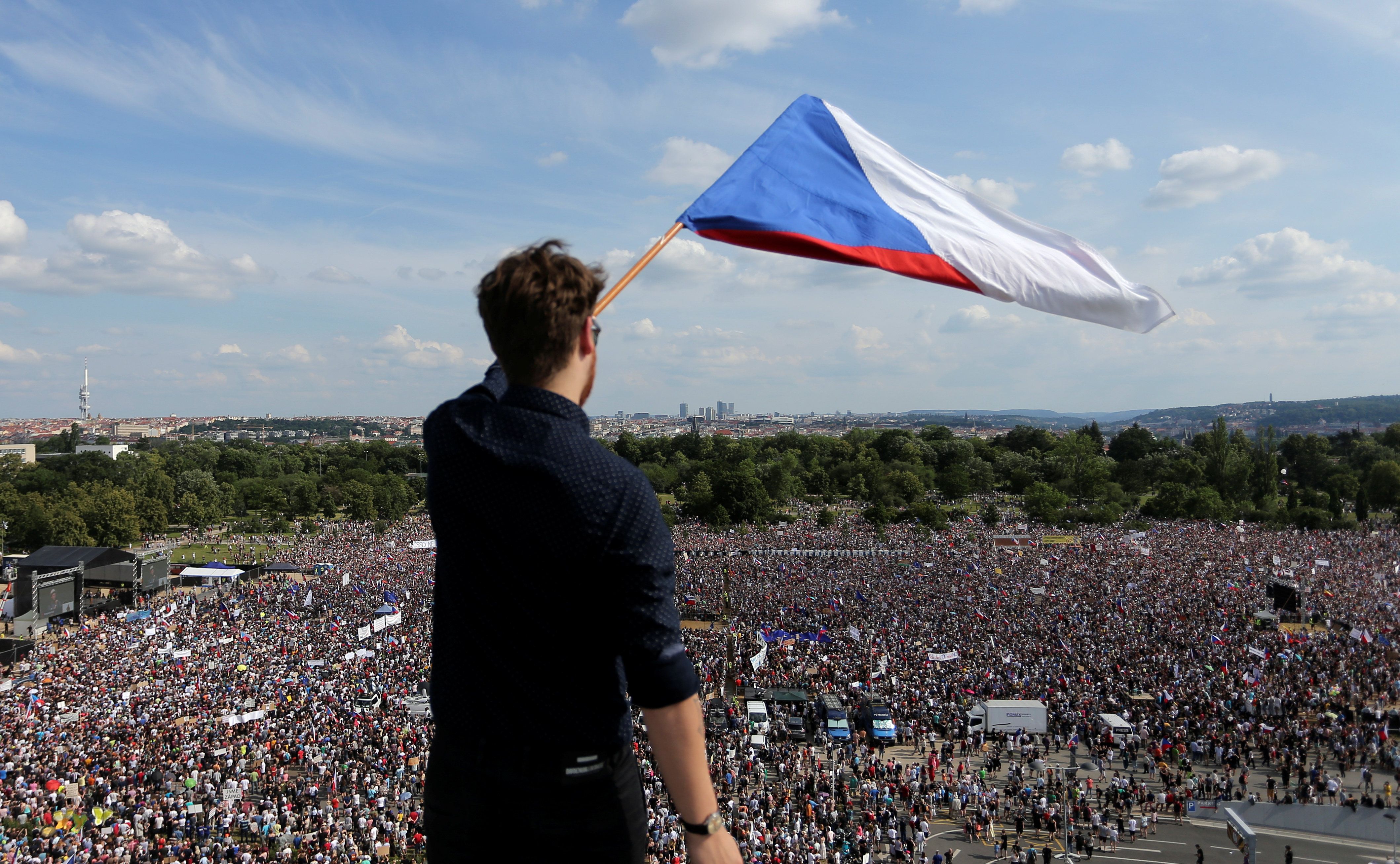Czech protests – When protesters flooded Prague's Wenceslas Square three weeks ago, Prime Minister Andrej Babis dismissed the size of the crowd as the natural result of the day's beautiful weather. Apparently, the skies were even bluer last Saturday as an estimated 250,000 gathered to again demand Babis' resignation. The demonstrators are angered by fraud charges against the prime minister, and by his decision to appoint a close political ally as justice minister right when prosecutors are considering an indictment against him. This is another example of a country where protests erupt not because of economic grievances—Czech growth has been quite strong in recent years—but because of a political leader who appears to hold himself above the law.
Assassinations and ethnic tensions in Ethiopia – Over the weekend, Ethiopia's Army Chief of Staff and top officials in the country's large Amhara region were killed in what authorities described as a coup attempt. The alleged leader of the coup, a general who had called for Amharas (Ethiopia's second largest ethnic group) to take up arms for more autonomy, was also killed. The episode underscores the political challenges for Prime Minister Abiy Ahmed, a transformative leader who has sought to liberalize Ethiopia's fast growing economy and politics since taking power last year. His reforms threaten powerful interests among the old guard (Mr Abiy himself survived an apparent assassination attempt last year that was blamed on rogue generals), and tensions among the country's dozens of ethnic groups are volatile.
Cash for Middle East Peace? – Today marks the opening of a two-day "Peace to Prosperity" conference in Manama, Bahrain, a part of US presidential son-in-law Jared Kushner's Israeli-Palestinian peace plan. We're watching mainly to see who even shows up for it. The plan aims to raise some $50bn worth of investment into the Palestinian territories and neighboring countries to get the Palestinians to agree to… well, it's not clear what: the plan has no details yet on critical questions about land, borders, or security. No high-ranking Palestinians have agreed to attend this event, in part because they reject Washington's decision to unilaterally recognize Jerusalem as Israel's capital in 2017. But given the lack of clarity on what the broader plan is, top ranking Israeli officials may not show up either. Anybody? Bueller?
What We Are Ignoring:
Attempts to silence an annoying French rooster- Summer vacationers in an island town off the Western coast of France are suing to shut up a large and loud local rooster named Maurice, according to this superb New York Times feature. The battle has become a symbol of the rural /urban divide in French society, and it carries strong nationalistic overtones too since the rooster (in general, not Maurice specifically) has long been a symbol of France. We are ignoring these peevish city slickers' attempts to silence majestic Maurice. Let the cock crow! (On a great side note, we learned that the rooster became a French symbol only because the Latin words for "rooster" and "Gauls" are the same: gallus.)
